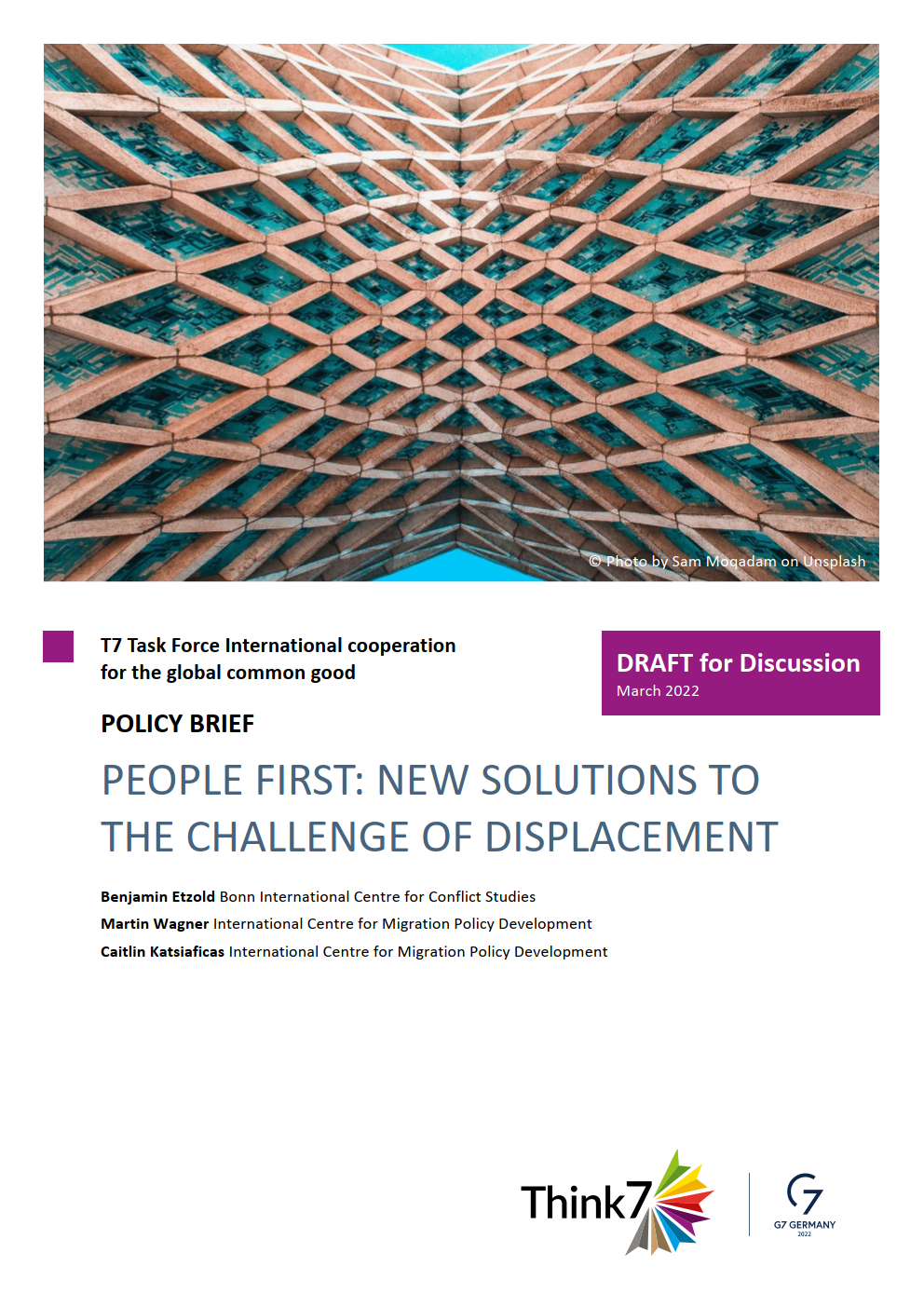TRAFIG advicing the G7/20 at the Global Solutions Summit
People first: New solutions to the challenge of displacement
Members of the TRAFIG team participated in the Global Solutions Summit , a forum for transforming research-based insights into policy recommendations for the G7/G20, on 28 and 29 March. Benjamin Etzold (BICC), Martin Wagner and Caitlin Katsiaficas (both ICMPD) have joint the task force "International cooperation for the global common good" of the Think7, a group of experts and think tanks who are providing advice to Germany's G7 presidency.
Based on insights directly derived from our TRAFIG research, they wrote a policy brief, which they introduced at the Global Solutions Summit in a virtual T7 task force work session on 29.03. at 16:00 and at the Think 7 Summit on 23-24 May in Berlin.
You can access a recording of the task force session and Benjamin's statement on alternative approaches to protracted displacement and key recommendations to the G7 states here (starting at min 34:15).
People First – New Solutions to the Challenge of Displacement
Authors: Benjamin Etzold, Martin Wagner, Caitlin Katsiaficas
Abstract:
More than 82 million people – equal to the population of Germany – are forcibly displaced across the globe. An increasing number of refugees and internally displaced persons are living in long-term situations of vulnerability, dependency, and legal insecurity. This is despite the fact that every displaced person has the capacity and resources to build a new future in displacement, but is rarely given the chance to do so by current aid, development, and migration policies.This policy brief makes the case for a paradigm shift towards a people-centred approach to displacement policy that 1) considers the human capital and social networks of displaced people and 2) enables them to use and further develop their potential, including through mobility. As the world’s most powerful countries, the G7 are well positioned to play a game-changing role in reducing the scale of global displacement by:
- leading global cooperation on displacement;
- promoting displaced people’s professional expertise so they can make better use of their skills;
- strengthening human capital by promoting education and apprenticeship opportunities;
- leveraging the power of family networks so that its easier for them to support one another; and
- scaling up support for the most vulnerable individuals.
You can access the draft policy brief here. A final version will be shared after the Global Solutions Summit.
